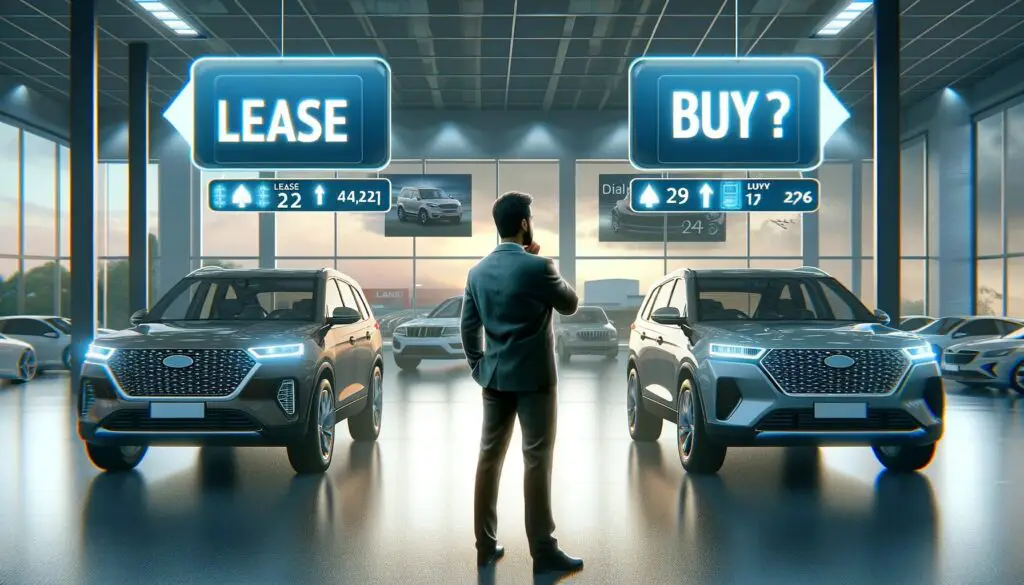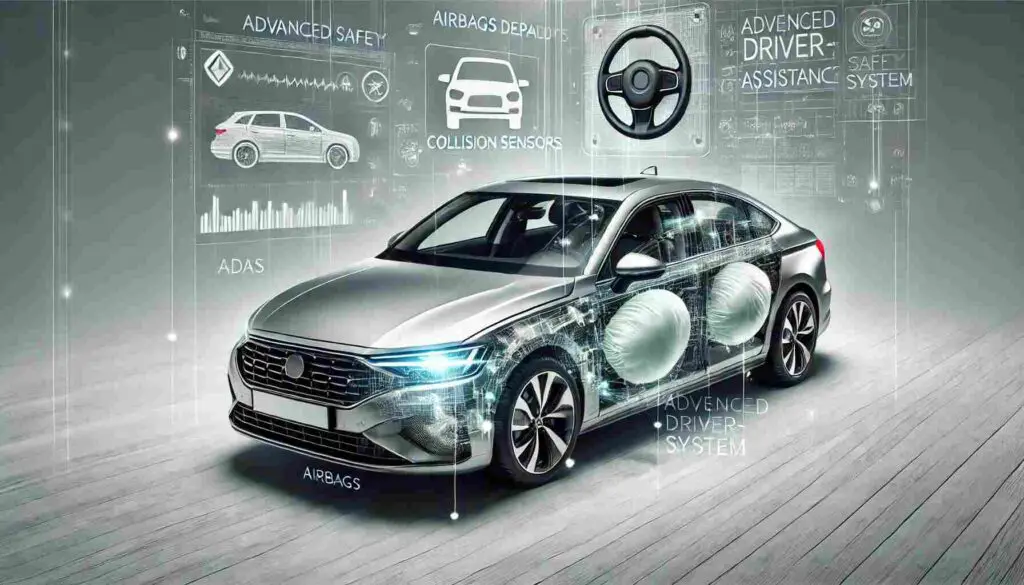In the realm of automotive decisions, the choice between leasing and buying a car remains a pivotal one. As we delve into the nuances of this decision-making process, it’s imperative to acknowledge the dynamic landscape of 2024, where shifting paradigms and emerging trends redefine traditional notions.
Understanding Car Leasing
What is car leasing?
Car leasing entails a contractual agreement wherein an individual pays for the use of a vehicle over a specified period, typically ranging from 24 to 48 months.
The process of leasing a car
Leasing involves an initial down payment followed by monthly installments, which cover the depreciation of the vehicle during the lease term.
Pros of leasing a car
- Lower monthly payments: Lease agreements often offer lower monthly payments compared to financing a purchase.
- Regular upgrades to newer models: Leasing provides the opportunity to drive newer vehicles with updated features and technology.
- Less worry about maintenance: As leased vehicles are typically under warranty, maintenance costs are minimized.
- Potential business tax deductions: For business owners, leasing may offer tax advantages, with lease payments being potentially deductible.
| Category | Key Points |
|---|---|
| Car Leasing | Lower monthly payments, Regular upgrades to newer models |
| Buying a Car | Long-term cost savings, No mileage restrictions, Freedom to customize |
| Financial Implications | Leasing vs. buying costs, Depreciation impact, Tax implications |
| Lifestyle Considerations | Driving habits, Future lifestyle changes |
| Budgeting | Lease vs. purchase budgeting, Tips for saving |
| Insurance Factors | Premium differences, Gap insurance |
| Maintenance and Repairs | Lease vs. ownership responsibilities, Warranty coverage |
| End of Lease Options | Return, purchase, or extend lease |
| Environmental Considerations | Eco-friendly options, Future trends in electric and hybrid vehicles |
| Technology and Innovation | Access to latest tech through leasing, Automotive technology trends |
| Market Trends and Predictions | Impact of market fluctuations, Predictions for 2024 and beyond |
| Negotiation Strategies | Tips for negotiation, Understanding dealership tactics |
| Legal Aspects | Reviewing lease and purchase contracts, Important contract elements |
The Case for Buying a Car
What does it mean to buy a car?
Buying a car involves a one-time payment or financing arrangement to acquire ownership of the vehicle.
The process of buying a car
Purchase transactions typically involve securing financing, negotiating the purchase price, and completing paperwork for title transfer and registration.
Benefits of owning a car
- Long-term cost savings: Despite higher initial costs, owning a car can be more economical over the vehicle’s lifespan.
- No mileage restrictions: Unlike leases, car ownership imposes no mileage limitations, providing freedom for extensive usage.
- Freedom to customize: Owners have the liberty to customize their vehicles according to personal preferences.
Financial Implications
Comparing the long-term costs: leasing vs. buying
While leasing offers lower upfront costs, buying can result in greater overall savings over the vehicle’s lifetime.
Understanding depreciation in car value
Depreciation, the decrease in a vehicle’s value over time, significantly impacts both leasing and buying decisions.
Tax implications for leasing and buying
Tax considerations vary between leasing and purchasing, influencing the overall financial equation.
Lifestyle Considerations
How your driving habits should influence your decision
Personal driving habits, including mileage and usage patterns, play a crucial role in determining the suitability of leasing or buying.
The importance of considering future lifestyle changes
Anticipating lifestyle changes, such as job relocation or family expansion, is essential when committing to a vehicle acquisition method.
Budgeting for Your Car
How to budget for a lease
Lease budgeting involves evaluating monthly payments, upfront costs, and potential end-of-lease fees.
Budgeting for a car purchase
For purchase budgeting, considerations include down payment, loan terms, and ongoing maintenance expenses.
Tips for saving on either option
Seeking out incentives, negotiating purchase prices, and exploring financing offers can lead to cost savings in both leasing and buying scenarios.
Insurance Factors
Insurance considerations for leased vs. purchased cars
Insurance premiums may differ between leased and owned vehicles, influenced by factors such as coverage requirements and vehicle value.
Understanding GAP insurance
Gap insurance, which covers the disparity between a vehicle’s value and the outstanding lease or loan balance, is particularly relevant for lessees and buyers.
Mileage and Usage
Analyzing your yearly mileage
Assessing annual mileage projections is crucial for lessees, as exceeding mileage limits can result in additional fees.
How mileage affects lease terms and car value
Excessive mileage can depreciate a vehicle’s value, impacting both leased and owned cars during resale or lease-end negotiations.
Maintenance and Repairs
Maintenance responsibilities for leased vs. purchased cars
While leased vehicles often include maintenance packages, owners bear full responsibility for upkeep and repairs.
Navigating warranty periods
Understanding warranty coverage is vital for minimizing out-of-pocket expenses related to maintenance and repairs.
Customization and Personalization
Customization options under leasing and buying
While customization possibilities may be limited under leasing agreements, owners have the freedom to personalize their vehicles extensively.
Limitations and allowances in car personalization
Lease contracts typically impose restrictions on modifications to preserve the vehicle’s resale value.
End of Lease Options
What happens when your lease ends
At the end of a lease term, lessees have the option to return the vehicle, purchase it outright, or explore lease extension possibilities.
Buyout options and returning the car
Buyout prices, residual values, and inspection requirements factor into the decision-making process at lease conclusion.
Selling and Trade-In Considerations
How to sell a purchased car
Selling a purchased car involves evaluating market conditions, preparing the vehicle for sale, and negotiating with potential buyers.
Trade-in options for leased and purchased cars
Both lessees and owners can leverage trade-in opportunities when acquiring a new vehicle, mitigating upfront costs.
Environmental Considerations
Eco-friendly options in leasing vs. buying
The emergence of electric and hybrid vehicles introduces environmentally conscious alternatives for both leasing and purchasing.
The future of electric and hybrid cars in leasing agreements
As environmental awareness grows, leasing companies and manufacturers may offer expanded options for eco-friendly vehicles.
Technology and Innovation
Keeping up with automotive technology trends
Advancements in automotive technology, such as autonomous driving features and connectivity enhancements, shape consumer preferences and leasing trends.
Leasing as a way to access the latest car tech
For tech enthusiasts, leasing provides a gateway to experiencing cutting-edge features without long-term commitments.
Market Trends and Predictions
How market trends influence leasing and buying decisions
Market fluctuations, consumer preferences, and regulatory changes exert significant influence on leasing and buying behaviors.
Predictions for the car market in 2024 and beyond
Forecasting shifts towards electric mobility, subscription-based models, and enhanced digital experiences underscores the evolving landscape of automotive retail.
Negotiation Strategies
Tips for negotiating a lease or purchase deal
Effective negotiation tactics include conducting research, leveraging competitor offers, and emphasizing long-term value propositions.
Understanding dealership tactics
Awareness of dealership strategies, such as upselling and add-on services, empowers consumers to make informed decisions.
Legal Aspects
Legal considerations in leasing and buying a car
Reviewing lease agreements and purchase contracts ensures compliance with legal requirements and safeguards consumer rights.
Important contract elements to review
Key contract provisions include lease terms, financing terms, warranty coverage, and dispute resolution mechanisms.
FAQs
Is leasing a car a waste of money?
Leasing can be a cost-effective option for individuals who prioritize lower monthly payments and prefer driving newer vehicles with updated features.
Can you buy your leased car at the end of the lease?
Lessees typically have the option to purchase the leased vehicle at the end of the lease term, subject to agreed-upon buyout terms.
How does car leasing affect credit score?
Car leasing may impact credit scores depending on payment history, credit utilization, and the presence of multiple lease inquiries.
What are the hidden costs in car leasing and buying?
Hidden costs may include excess mileage fees, wear and tear charges, and disposition fees at the end of a lease term.
Can you negotiate the buyout price of a leased car?
Negotiating the buyout price of a leased car is possible, especially if the vehicle’s market value differs from the predetermined residual value.
Conclusion
In navigating the complex terrain of car acquisition, informed decision-making hinges on a thorough understanding of leasing and buying dynamics. By weighing financial considerations, lifestyle preferences, and future aspirations, individuals can chart a course towards automotive satisfaction and fiscal prudence.
Resources and Further Reading
For comprehensive insights and expert guidance on leasing vs. buying considerations, explore the following resources:
- Books: “The Ultimate Car Leasing Guide” by John Smith
- Websites: Edmunds.com, Kelley Blue Book (kbb.com)
- Tools: Lease vs. Buy Calculator (leaseguide.com)








